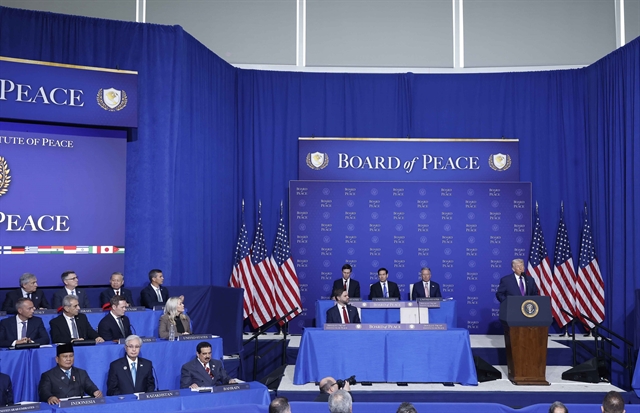 World
World
.jpg)
US recruits to the Islamic State group struggle more than their European counterparts, lacking support networks and field experience and being assigned to menial jobs, a report on American jihadists has said.
WASHINGTON — US recruits to the Islamic State group struggle more than their European counterparts, lacking support networks and field experience and being assigned to menial jobs, a report on American jihadists has said.
The study by the George Washington University Program on Extremism said that online social networks were more essential to Americans in reaching Syria and Iraq, as they often had limited personal connections that could help them reach the battlefield.
Once there a number found disappointment in an unfamiliar terrain and faced significant culture clashes; many, if they stayed alive, soon sought to return to the United States despite facing near-certain imprisonment.
"For many of the returnees, life in jihadist-held territory did not live up to their expectations," said the study entitled The Travelers.
"Living conditions were much harsher than they saw in the online magazines and videos, and the promises of companionship and camaraderie were rarely fulfilled," the study said.
"Instead, cultural clashes, bitter infighting and suspicion among recruits and leadership abounded. Many of the Americans had little to no combat experience and were assigned duties such as cleaning safehouses, cooking, and caring for the sick and injured."
Low number of American ’foreign fighters’
The study examines the experience of 64 of the estimated 300 Americans who made their way to the Islamic State fight, or in some cases to join other jihadist groups like Jahbat al-Nusra, an al-Qaeda affiliate.
That is a fraction of the 5,000-6,000 who traveled from Europe to join the fight, including 900 from France and 750 from Britain.
The report draws on court documents, interviews, and a huge database of online postings and a catalogue of one million tweets by the jihadists.
It finds few threads tying the US jihadists together: they had disparate backgrounds, came from many states, and emerged from a generally wealthier and better-integrated Muslim community, compared to their counterparts in Europe.
Of the 64, the average age was 27, 89 per cent were men, and 70 per cent were US citizens or permanent residents. At least 22 died in Syria and 12 returned on their own or under arrest. The whereabouts of the rest aren’t known, and some could also be dead.
The authors found three types of joiners: "pioneers", early, strongly self-motived and knowledgeable enlistees in the IS fight; "networked travelers" with some family and friends providing support; and "loners" enabled by online communications.
One reason for the low number of American "foreign fighters", the study says, is that US law makes it easier for police to intervene early, on the grounds of a hopeful jihadist’s professed support for an outlawed extremist group.
Another is the difficulty of personal networking, compared to Europe. There was one "cell" in heavily Muslim Minnesota, where some 15 personally connected Americans tried to join IS.
Elsewhere, they struggle with often just one friend or relative helping out, depending more on guidance from IS recruiters online. — AFP
.jpg)



